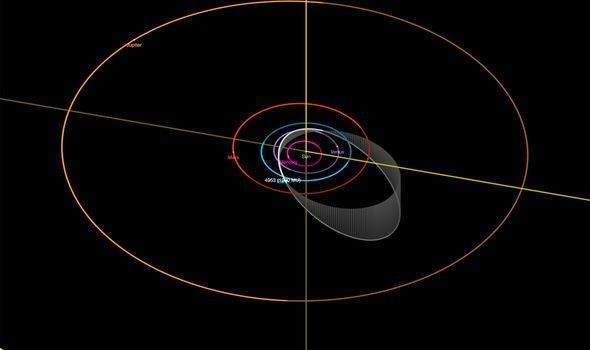Over-conservative climate scenarios mean we could face ‘world of outright chaos’, says analysis authored by former fossil fuel executive and backed by former head of Australia’s military.


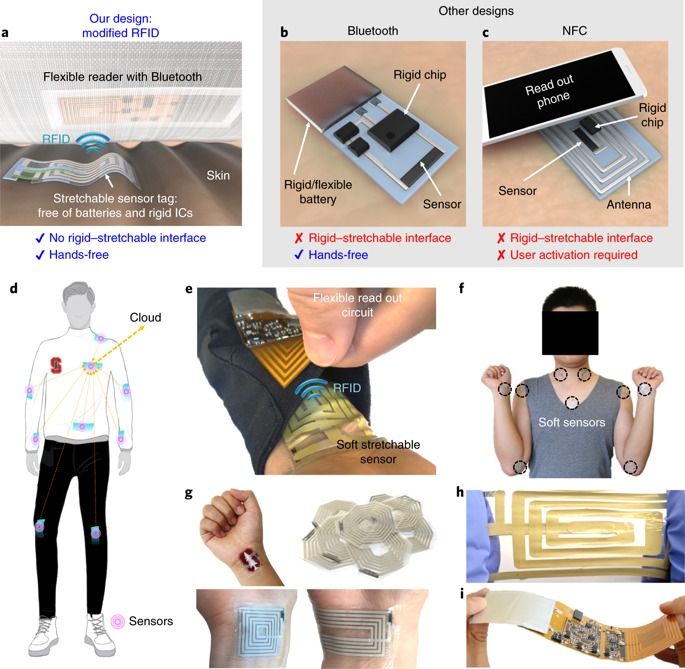
Stanford engineers have developed a new type of wearable technology called BodyNet that detects physiological signals emanating from the skin. The novel tech consists of wireless sensors that stick like band-aids and beam readings.
A body area sensor network (bodyNET) is a collection of networked sensors that can be used to monitor human physiological signals. For its application in next-generation personalized healthcare systems, seamless hybridization of stretchable on-skin sensors and rigid silicon readout circuits is required. Here, we report a bodyNET composed of chip-free and battery-free stretchable on-skin sensor tags that are wirelessly linked to flexible readout circuits attached to textiles. Our design offers a conformal skin-mimicking interface by removing all direct contacts between rigid components and the human body. Therefore, this design addresses the mechanical incompatibility issue between soft on-skin devices and rigid high-performance silicon electronics. Additionally, we introduce an unconventional radiofrequency identification technology where wireless sensors are deliberately detuned to increase the tolerance of strain-induced changes in electronic properties. Finally, we show that our soft bodyNET system can be used to simultaneously and continuously analyse a person’s pulse, breath and body movement.
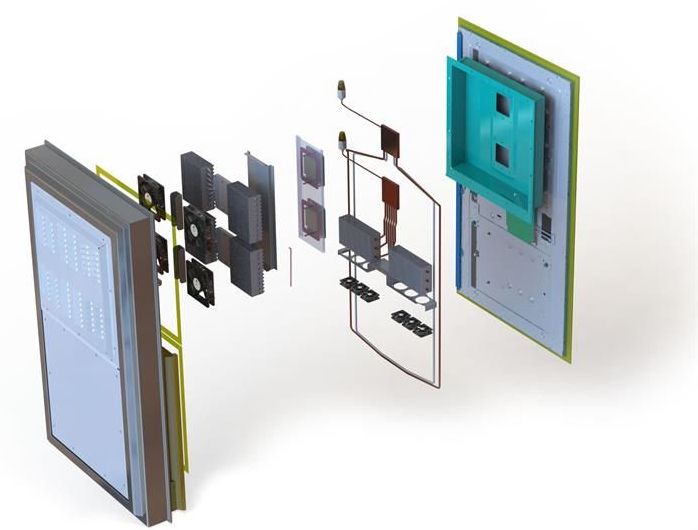
US based Phononic’s thermoelectric technology is proving truly disruptive in the usually staid world of cooling technology.
When it comes to cooling technologies it’s fair to say that not a lot has changed in the past 100 years. Today, however, Phononic, a US company based in North Carolina, is using solid-state microchips to reinvent how devices are cooled.
“Over the past 50 years, semiconductors have totally transformed areas as diverse as data, communications, solar power and LED lighting,” says Alex Guichard, senior products marketing manager, Phononic. “Today, we’re using thermoelectric coolers to offer a radical alternative to traditional forms of cooling technology.”

Ellen Swallow Richards was not going to be intimidated by a room full of health experts and officials. Children were dying and their parents, Boston’s taxpayers, and city officials were to blame. The tiny, square-chinned woman thought nothing of climbing over boulders in petticoats, collecting thousands of water samples by horseback, or exploring mines on her honeymoon. So when she took the podium at the 1896 meeting of the American Public Health Association, she wasted no time in laying out her evidence.
More than 5,000 cases of illness could be attributed to the illegal conditions in Boston’s public schools, she said. Buildings lacked ventilation. Sewer pipes were still open. Toilets were filthy. Some 41 percent of the floors had never been washed. Only 27 of the city’s 168 schools had fire escapes that worked. Fully half of Boston’s schoolhouses were “deleterious to health.” The public and parents should be charged with “the murder of some 200 children per year,” Richards declared, their deaths entirely preventable from environmental hazards.
The strident, accusatory tone of Richards’ speech was remarkable, given how tactful she had been in the first two decades of her career. That tact had been a coping strategy, characteristic of a pragmatic feminism. Richards had been the first woman admitted to the Massachusetts Institute of Technology and the university’s first woman instructor. To blend in, she made a conscious effort to appear as unthreatening and feminine as she possibly could to her male colleagues. She even mended their clothes when they asked.

Listen up, pet owners! Earlier this summer, several dogs in North Carolina, Georgia, and Texas perished after coming into contact with toxic blue-green algae. Although this may seem pretty far from home, it’s really a countrywide problem. The same toxic algae has even been spotted in Nevada, so you’ll definitely want to be on the lookout for this nasty stuff. Not only can it cause a variety of symptoms in humans, but it’s considered deadly for animals. Keep reading and learn how you can keep an eye out for algal blooms and keep your pets safe during your adventures.
Had you heard about this toxic blue-green algae that’s already killed several dogs this year? This stuff definitely isn’t to be taken lightly.
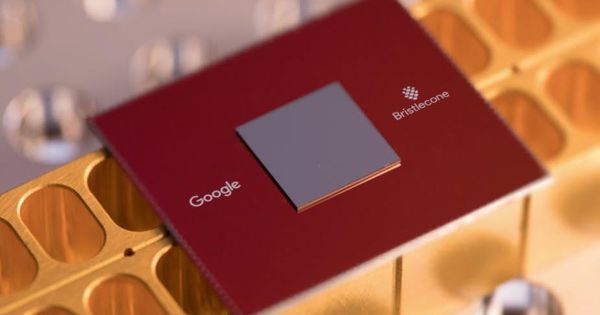
Down the road
The end game for quantum computing is a fully functional, universal fault-tolerant gate computer. To fulfill its promise, it needs thousands, maybe even millions, of qubits that can run arbitrary quantum algorithms and solve extremely complex problems and simulations.
Before we can build a quantum machine like that, we have a lot of development work to be done. In general terms, we need:
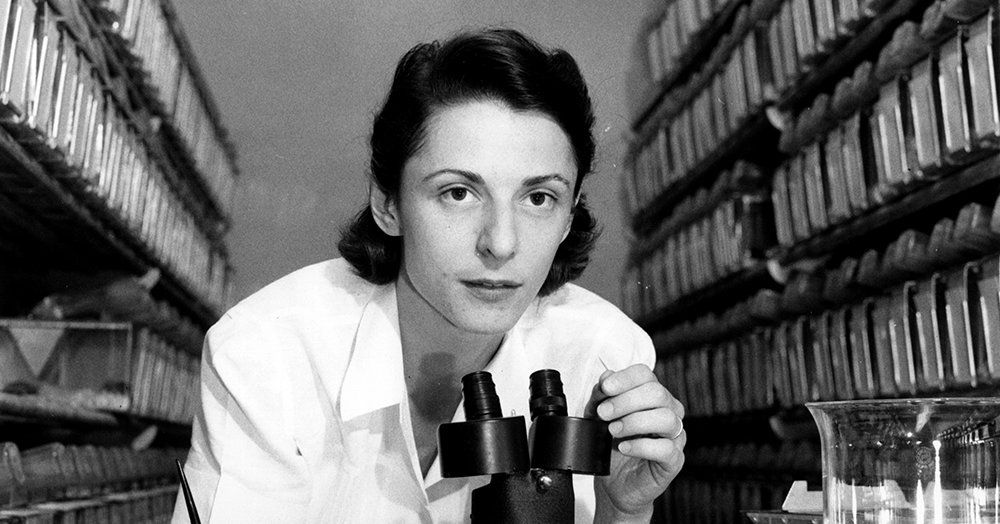
For example, the embryos of mice that had been impregnated at the same time and then irradiated at the same time all developed the same foot deformity. The embryos that were radiated a day later all had a different foot deformity. A third group of mice, radiated on a different day, all had short tails.
Through extrapolation, Dr. Russell determined that in humans, developing fetuses were most vulnerable to radiation during the mother’s first seven weeks of pregnancy. Because women generally don’t know right away whether they are pregnant, Dr. Russell recommended that non-urgent diagnostic X-rays be taken in the 14 days after the onset of a woman’s menstrual period. Women don’t ovulate for those two weeks, so Dr. Russell reasoned that they could not become pregnant and doctors could avoid potentially causing harm to a fetus by using radiation.
That recommendation was adopted around the world and is the reason doctors, before taking X-rays, ask women of childbearing age if they are pregnant or if they think they might be pregnant.
